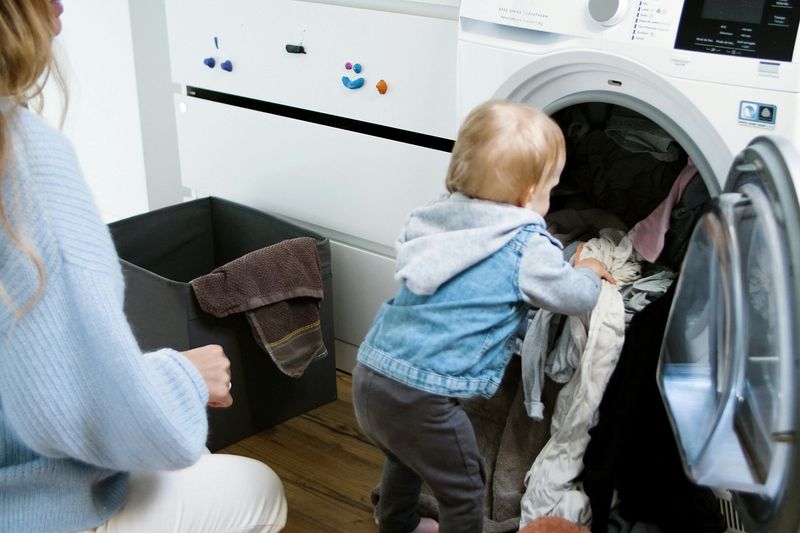Raising confident children is one of the most important gifts we can give them for their future success. Kids with healthy self-esteem are better equipped to handle life’s challenges, form positive relationships, and pursue their dreams. Building this confidence doesn’t happen overnight, but with consistent support and the right approach, parents can nurture children who believe in themselves and their abilities.
1. Praise Effort, Not Just Results
Children flourish when we acknowledge their process, not just their achievements. When you notice your child working hard at a puzzle, say “I love how you kept trying different pieces” rather than waiting until it’s complete to offer praise.
This approach teaches them that determination matters more than natural talent. Kids who hear “you worked so hard on that!” develop a growth mindset that serves them throughout life.
Over time, they’ll learn to value their own effort and perseverance, even when facing challenges. They’ll understand that mistakes are stepping stones, not failures, creating resilience that carries them through difficult tasks.
2. Model Self-Confidence
Your children are watching you more closely than you might realize. When you speak positively about yourself, tackle new challenges with enthusiasm, or bounce back from mistakes, you’re teaching powerful lessons without saying a word.
Try narrating your own confidence journey occasionally. “I was nervous about this presentation, but I prepared well and I’m going to do my best.” This transparency shows them that confidence isn’t about being perfect.
Remember to watch your self-talk around children. Avoiding harsh self-criticism and instead demonstrating self-compassion gives them permission to treat themselves with the same kindness.
3. Give Them Age-Appropriate Responsibilities
Even young children beam with pride when trusted with meaningful tasks. A four-year-old setting the table or an eight-year-old walking the family dog builds genuine confidence through real contribution.
Start small and gradually increase responsibilities as they show readiness. The key is finding that sweet spot where tasks feel challenging but achievable with some effort.
When they complete their responsibilities, acknowledge their contribution to the family. “Thanks for feeding the cat – she depends on you, and you’re so reliable!” This reinforces that they’re capable and their efforts truly matter in a way that empty praise never could.
4. Encourage Problem-Solving
The instinct to rescue children from every struggle actually robs them of valuable confidence-building opportunities. When your child comes to you with a problem, resist immediately jumping in with solutions.
Instead, ask guiding questions: “What have you tried so far?” or “What do you think might work?” This approach communicates your belief in their abilities while developing critical thinking skills.
Watching a child work through challenges can test a parent’s patience. Remember that the temporary frustration they experience while problem-solving builds far more confidence than being rescued. Their pride in finding their own solution becomes a foundation for tackling future obstacles.
5. Listen Without Judgment
Creating a safe space where children can express themselves honestly lays the groundwork for lasting confidence. When your child shares thoughts or feelings, put down your phone, make eye contact, and really listen – not just to respond, but to understand.
Avoid dismissing their concerns with phrases like “don’t worry” or “you’ll be fine.” Instead, validate their emotions: “That sounds really frustrating” or “I can see why you’d feel that way.”
This kind of attentive listening sends a powerful message: their thoughts matter and their voice deserves to be heard. Children who feel truly listened to at home are more likely to speak up with confidence in other settings.
6. Celebrate Uniqueness
Every child possesses qualities that make them wonderfully one-of-a-kind. The quiet artist, the boisterous athlete, the curious questioner – these differences deserve celebration rather than correction.
Point out specific traits that make your child special: “I notice how carefully you observe things before making decisions,” or “Your creativity in solving problems always amazes me.” This specific recognition helps them identify and value their authentic strengths.
Family traditions that highlight each person’s uniqueness can reinforce this message. Consider a monthly dinner where each family member takes turns being celebrated for their special qualities, creating a culture where differences are treasured rather than merely tolerated.
7. Provide Opportunities for Success
Confidence grows from a collection of small victories. Children need regular chances to try, succeed, and occasionally fail in supportive environments where the stakes aren’t too high.
Look for activities that match your child’s interests and current abilities, with room to grow. A child who loves animals might start with feeding pets, then progress to volunteering at a shelter. Each successful step builds confidence for the next challenge.
Remember that these opportunities don’t need to be formal or expensive. Cooking a simple meal together, completing a neighborhood scavenger hunt, or learning to ride a bike all provide that magical mix of challenge and achievement that builds genuine confidence.
8. Set Realistic Expectations
The sweet spot for building confidence lies between too much pressure and too little challenge. Children thrive when expectations stretch them slightly beyond their comfort zone while remaining achievable with effort.
Consider your child’s individual development rather than comparing to siblings or peers. A realistic goal for one eight-year-old might be reading chapter books independently, while another might still be working on reading confidence.
When setting expectations, involve your child in the conversation when possible. “What do you think would be a good reading goal this month?” This collaborative approach teaches them to set appropriate challenges for themselves, a skill that serves them throughout life.
9. Teach Resilience
Life’s inevitable setbacks become powerful teaching moments when handled with care. When your child faces disappointment – whether a lost game, a failed test, or a friendship challenge – acknowledge their feelings first: “I can see you’re really upset about this.”
Once emotions have settled, help them find the learning opportunity. “What might you do differently next time?” or “What did you learn from this experience?” These conversations transform setbacks into stepping stones.
Share age-appropriate stories of your own resilience journey or examples from books and movies. Children find comfort and inspiration in knowing that everyone, even adults they admire, faces obstacles and must bounce back.
10. Encourage Independence
The thrill of “I did it myself!” builds confidence like nothing else. From toddlers insisting on buttoning their own shirts to teenagers navigating public transportation alone, age-appropriate independence fuels self-assurance.
Start by identifying tasks your child could potentially handle with minimal supervision. Though it might take longer or be messier when they do it themselves, resist the urge to take over. That extra five minutes watching them struggle with shoelaces pays dividends in confidence.
The hardest part? Stepping back when every parental instinct says to step in. Remember that allowing natural consequences for small mistakes now (like forgetting homework) builds responsibility for bigger decisions later.
11. Limit Comparisons
“Why can’t you be more like your sister?” These seemingly innocent comparisons plant seeds of insecurity that can last a lifetime. Every child walks their own unique path at their own pace.
Focus conversations on their individual progress instead. “I noticed you’re reading much more fluently than last month!” celebrates growth without the shadow of comparison. This approach teaches children to measure success against their previous selves, not others.
Be mindful of subtle comparisons too – even positive ones like “you’re our athletic one” can unintentionally box children into limiting identities. Children flourish when they feel free to evolve beyond labels and explore their full potential without comparative pressure.
12. Show Unconditional Love
The foundation of true confidence is knowing you’re valued simply for existing, not for what you achieve. Small daily moments often communicate this message more powerfully than grand gestures.
Create rituals that reinforce unconditional love – perhaps a special phrase when saying goodnight or a tradition of leaving surprise notes in lunchboxes. After disappointments especially, make extra time for connection to separate performance from worth.
Remember that discipline moments test this message. Even when addressing behavior problems, language matters: “That choice wasn’t helpful” rather than “you’re so careless.” Children who feel securely loved develop the emotional safety net needed to take risks and develop authentic confidence.












